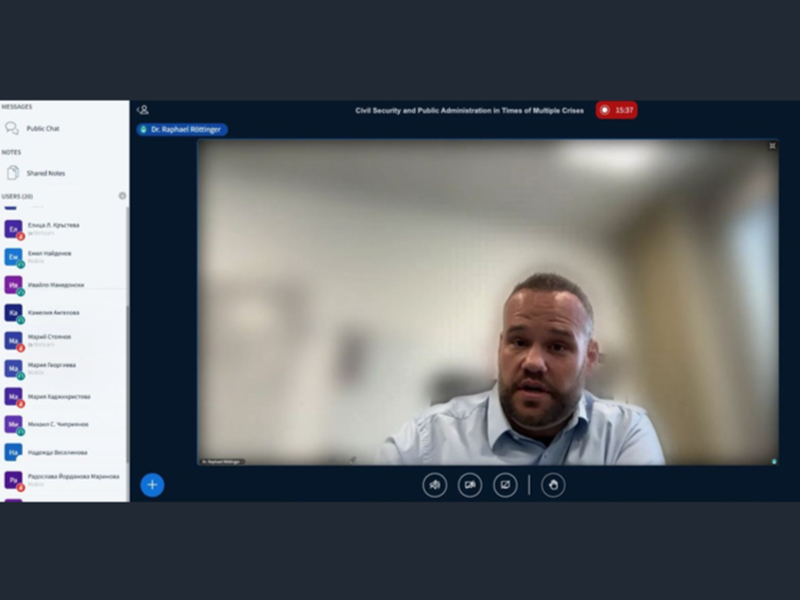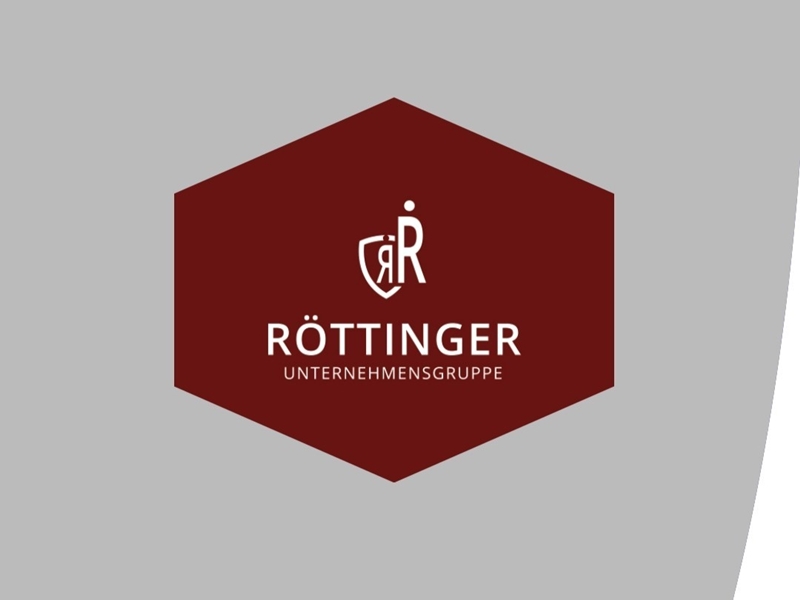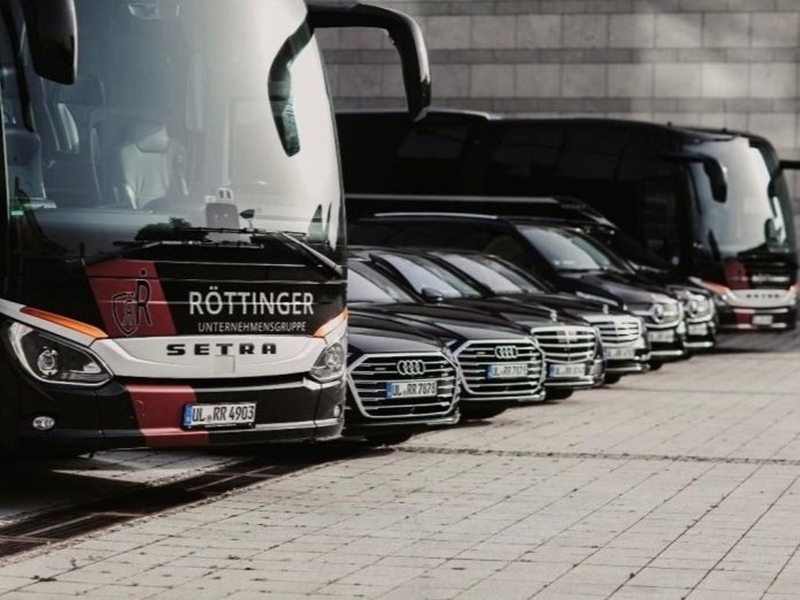Dr. Raphael Röttinger for Civil Security and Public Administration in Times of Multiple Crises
On the occasion of the 70th anniversary of the founding of the Department of Strategic Planning, leading expert in the field of security and public administration, Dr. Raphael Röttinger, was a special guest and lecturer in a hybrid event organized by the Department. At the invitation of its head, Assoc. Prof. Mihail Chipriyanov PhD, Dr. Röttinger presented his keynote paper, entitled “Civil Security and public administration in times of multiple crises”.
In his in-depth and comprehensive analysis, Dr. Röttinger outlined the contemporary situation of “permanent crisis”, marked by geopolitical conflicts (the war in Ukraine, the conflict in the Middle East), the growing rivalry between world powers and the effects they have even on countries far from the front line – from energy prices and migration processes to hybrid and cyber threats. The lecturer emphasized that external and internal security are deeply connected, and a single institutional unit is no longer able to cope with these complex challenges.
The report focuses on the need for close cooperation between the state, local administrations and the private sector to ensure national resilience. Referring to the experience of Germany, Dr. Röttinger pointed out that in the face of economic pressure, social tensions and a shortage of qualified personnel, the state can no longer assume full responsibility. The private security sector is becoming a key strategic partner in protecting critical infrastructure and supporting crisis response.

"This cooperation is no longer optional — it is a strategic necessity for national resilience," stressed Dr. Röttinger.
The lecturer touched on several critical points that require urgent reforms within public administration and security:
- 1. Legal framework and administration. Acknowledging the strict regulations of the German security industry, Dr. Röttinger calls for a faster, more digital and more cooperative public administration. He defines modern governance as networked cooperation that must shift from a role of control to one of coordination.
- Change in security culture. There has been a positive shift from the “lowest price wins” model to a recognition of the value of security and the need for adequate long-term investment in professionalism.
- Remuneration and respect. Dr. Röttinger strongly emphasized that low remuneration and insufficient social recognition of private security workers are a serious problem. He called on public administration to support fairer standards in tenders and to recognize private security as an integral part of the national security architecture.
- Rising aggression and psychological resilience. A warning has been issued about the increasing number of attacks on law enforcement officers, firefighters, paramedics and private security guards, which calls for improved training, equipment and psychological support to deal with stress and trauma.
- Financing and cost-sharing. The speaker highlighted the structural imbalance in financing, where the private sector bears the costs of training and equipment from its own margins, while the public sector relies on budget funding. He recommended more equitable cost-sharing through co-financed training programs and joint exercises.
In the final part of his report, Dr. Röttinger focused on digital transformation and smart governance as key elements for faster coordination and increased transparency. He categorically stated that technology alone does not make society sustainable, but people. Investments in human capital, ethical leadership, continuous learning and innovation (in drone detection, AI-based risk analysis) are vital.
In a European context, Dr. Röttinger called for common standards, common training and open exchange, emphasizing that the challenges are pan-European.
The conclusion of the lecture was clear: civil security and public administration are inextricably linked. If security is perceived not as an expense, but as an investment in good governance and sustainability, society will strengthen its democracy, economy and social peace.
The term "Civil Security" is used because it encompasses the complex resilience of society and the state against non-military threats (crises, cyber threats, hybrid operations). Unlike "Public Security" (focused primarily on order and crime), "Civil Security" includes the networked cooperation between public administration, local authorities and the private security sector in the protection of critical infrastructure, which is a central theme in the report.

Since 2011, Dr. Röttinger has been Managing Partner of the holding company Roettinger Unternehmensgruppe (Röttinger Group), which he leads together with his father and an outstanding team. This successful family business currently employs approximately 600 people. The group comprises seven subsidiaries with offices in Ulm and Cologne.

Roettinger Unternehmensgruppe serves well-established clients such as FC Bayern Munich, FC Augsburg, the Ratiopharm Ulm basketball club, the Bregenz Festival Hall, as well as numerous large-scale events with over 30,000 visitors. His entrepreneurial success highlights his strategic vision, leadership skills and operational excellence.
